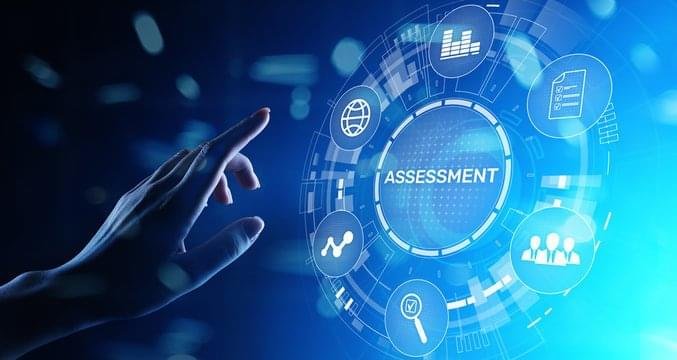The Importance of Regularly Evaluating Your HRIS System

In today’s fast-paced business environment, having an efficient and effective HRIS System Evaluation (HRIS) is crucial for any organization. However, it’s not enough to simply implement an HRIS and assume it will continue to meet your needs indefinitely.
Regularly evaluating your HRIS system is essential to ensure it remains aligned with your business goals and continues to provide value. At The HR Innovator Group, we understand the critical role an HRIS plays in your operations, and here’s why consistent evaluation is a must.
"Regularly evaluating your HRIS system isn’t just maintenance—it’s a strategic move to ensure your people operations stay aligned, efficient, and ready for what’s next."
Richard Branson
Adapt to Changing Needs
As your business grows and evolves, your HR requirements naturally become more complex, and systems that once served a smaller team may no longer be effective. Regularly evaluating your HRIS System Evaluation helps identify functional gaps, inefficiencies, or outdated processes, allowing you to make timely adjustments. This ensures that your HR technology continues to support both current operations and future organizational needs, promoting scalability and long-term success.
Enhance Productivity and Efficiency
An outdated or misaligned HRIS can significantly hinder productivity by creating unnecessary bottlenecks and inefficiencies in everyday HR tasks. Manual data entry, limited reporting capabilities, and poor integration with other tools can consume valuable time and resources, leaving your HR team overwhelmed and less effective. These issues not only reduce operational efficiency but can also impact the overall employee experience.
By regularly assessing your HRIS, you can proactively identify and address these inefficiencies, ensuring the system continues to meet the evolving needs of your organization. Upgrading features, improving workflows, or adopting more advanced tools allows your HR team to focus on strategic initiatives like talent development, employee engagement, and workforce planning, rather than being weighed down by outdated processes. This leads to a more agile, responsive, and high-performing HR function.
Stay Compliant with Regulations
Employment laws and regulations are continually evolving, making it essential for businesses to keep their HR systems up to date. Regular HRIS evaluations help ensure compliance by identifying areas where the system may fall short of current legal standards. Staying proactive in this way minimizes the risk of non-compliance, which can result in costly fines, legal disputes, and potential harm to your company’s reputation.

Boost Employee Morale and Confidence
-
User Confidence An intuitive HRIS builds employee trust by making essential tasks like time tracking and leave requests simple, reducing confusion and improving daily user experiences.
-
Seamless Access Reliable systems ensure employees can access benefits, pay information, and performance tools easily, promoting transparency and empowering them to manage their own HR needs.
-
System Reliability Consistent performance minimizes downtime, helping employees complete tasks efficiently and fostering a smooth interaction with HR processes.
-
Ongoing Improvement Regular evaluations identify usability issues, enabling updates that keep the HRIS aligned with user expectations and technological advancements, sustaining long-term satisfaction.
Optimize Costs
Regularly reviewing your HRIS can uncover valuable cost-saving opportunities by highlighting unused features, redundant processes, or inefficiencies that can be streamlined or eliminated. These insights may also lead to the discovery of more cost-effective solutions that better align with your current needs and goals. By optimizing your system in this way, you ensure that your organization is maximizing the return on its investment and using resources as efficiently as possible.
Prepare for Technological Advancements
Technology is constantly evolving, and new HRIS features and integrations are regularly introduced to enhance functionality and efficiency. By conducting regular evaluations, you stay informed about the latest innovations and can assess how they align with your organization’s needs. Staying up to date ensures you’re leveraging the most effective tools and capabilities to support and strengthen your HR functions, keeping your systems competitive and future-ready.
How to Conduct an HRIS Evaluation
Assessing your HRIS involves several key steps to ensure it remains effective and aligned with your organization’s goals. Start by evaluating current usage—identify how the system is being used across the organization and gather feedback from employees about its strengths and areas needing improvement. Next, review performance metrics to analyze whether the system is meeting your efficiency, productivity, and compliance objectives. Stay informed about industry trends and explore any new features or updates offered by your HRIS provider that could enhance your system’s capabilities. Finally, seek expert advice from professionals like The HR Innovator Group to gain objective insights and tailored recommendations that support strategic improvements.

Conclusion
Regularly evaluating your HRIS system is not just a good practice; it’s a necessity for maintaining a dynamic and responsive HR function. By ensuring your HRIS evolves with your business, you can enhance productivity, stay compliant, boost employee morale, optimize costs, and prepare for future advancements.
At The HR Innovator Group, we specialize in helping organizations maximize the potential of their HRIS systems. Contact us today to learn how we can support your HR technology needs and drive your business forward.





